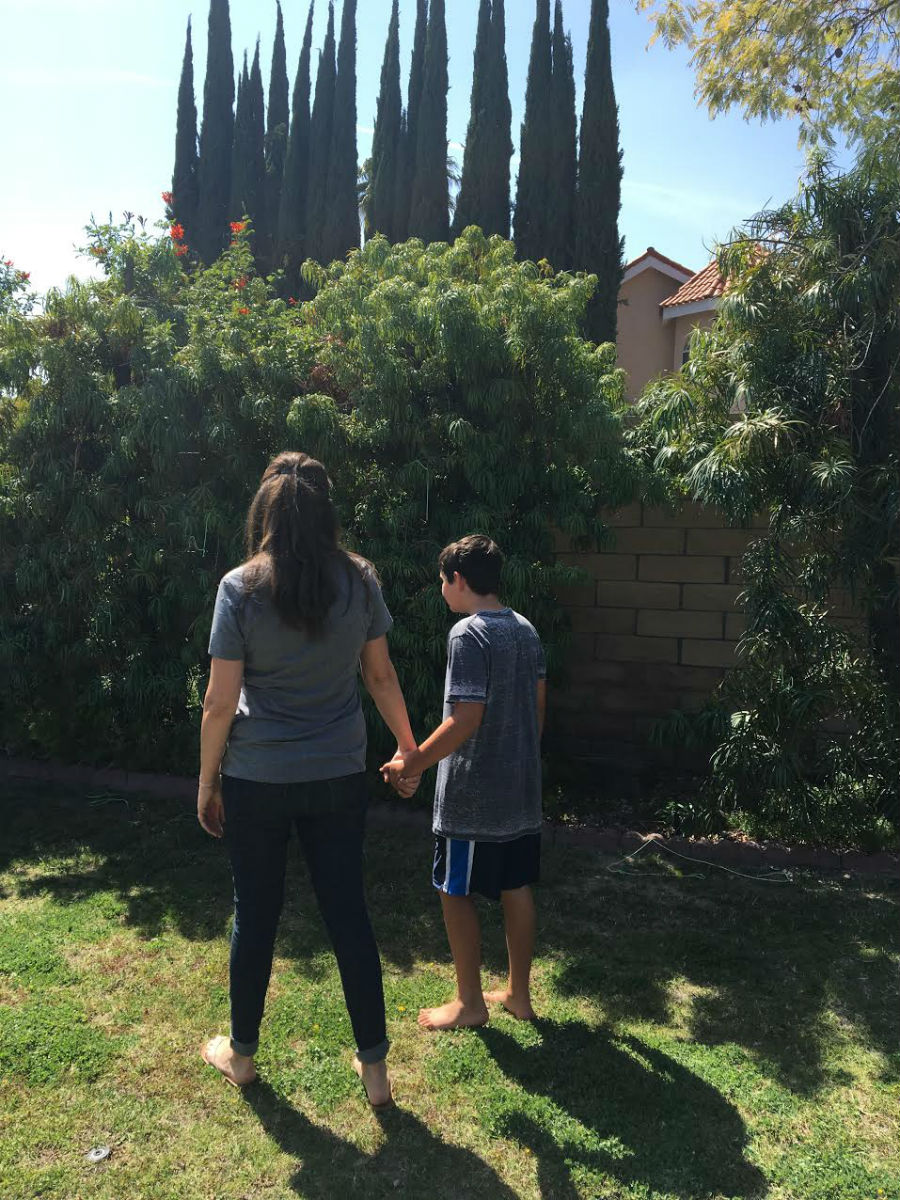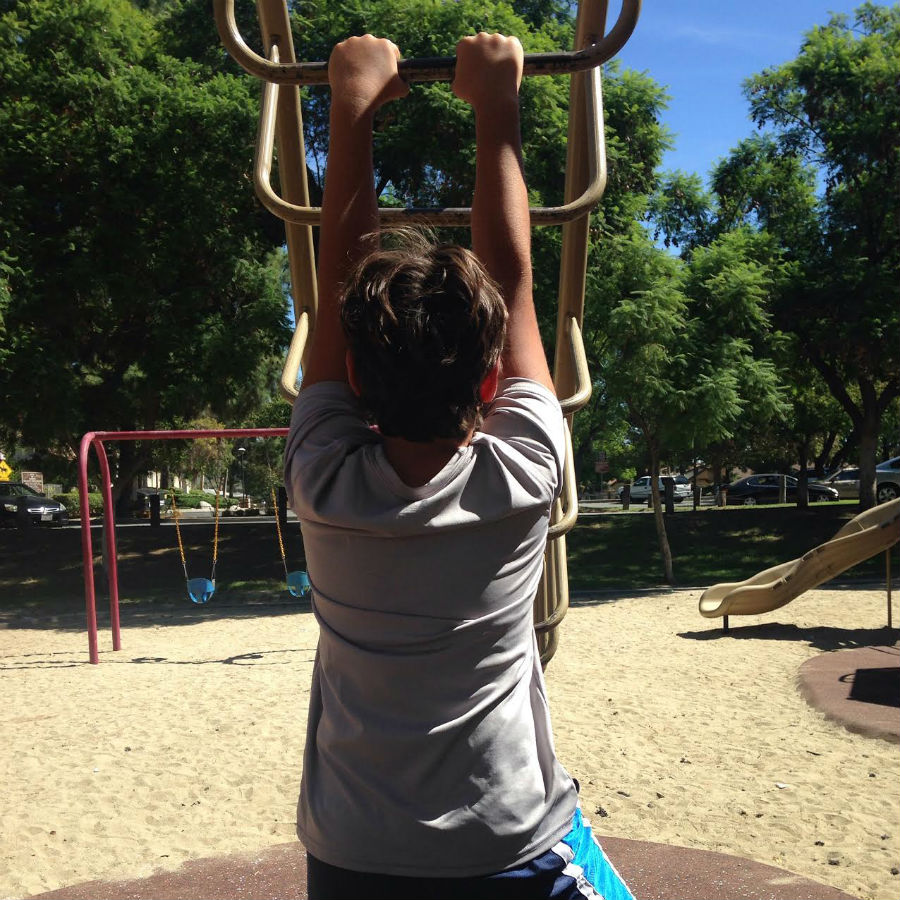She came up to me, our first Sunday there, and said, “If your son needs to be in a more quiet place, he is welcome to hang out with me in the lobby. I have the church’s Wi-Fi passcode and he can use it if he has a device. I know it must be hard not to go into the service with your husband, so this way, you guys can have the hour together.”
I was speechless. And grateful. And amazed.
No one tells you that church and sensory issues are like oil and water. They don’t mention it in occupational therapy, or when you get the diagnosis, or even in the books that talk about what to expect.
Yet every mom I know who has a unique little one like mine has experienced it.
Many people have asked me what we do about church. I know why you ask. It’s a loaded question. It’s a question with layers and layers of more questions. It’s a question that I am sad to say I still have no real answer to. It’s a question that we have wrestled with — for years.
For my son, the sensory experience of going to church is something similar to torture (I wish I was exaggerating to make a point).

He enters the crowded lobby with wall-to-wall people, everyone talking at the same time, various smells of babies and coffee and muffins and perfume, getting bumped here and there because it’s not time for the service to start, and people are still talking and welcoming and trying to hang on to their children as they run for the doughnuts and other children.
When it is time to start, he has the choice to attend with us where the worship music that everyone else seems to enjoy is overwhelmingly loud and painful, the lighting is weird and makes it hard for him to focus his eyes, and the pastor is talking into a microphone, which blurs the words into a series of louder and louder sounds that he can’t make out. It’s all just noise, painful and overstimulating. But it is better than the Sunday school classroom, with even louder kids, confusing social situations, worse smells, and a teacher that keeps asking him to read aloud, answer questions, and engage in crafts. He can hear the other kids' pencils and crayons as they move across the work sheet — the sound of a writing instrument on paper is more searing than the loudest noise all morning. It’s like a drilling noise in his ear, constant and overwhelming.

No matter what he chooses, when church is over, he is exhausted and anxious. He makes his way back through the crowded lobby and the smells and the people touching him and the kids playing. Then he hears me say, “We should go out to lunch.” Knowing this means more smells, clanging kitchen noises, the constant buzz of conversations at other tables, and the horribly loud music they play in the background, he panics. The meltdown begins.
This. Every. Single. Sunday.
I wish I knew five years ago. I wish I realized the extent of it even six months ago.

It saddens me to say that for years I forced — literally dragged him out the door on Sunday mornings. I thought I was doing the right thing. I love church. I thought he would too, eventually.
It makes me a little sick to think that I worried more about what other people thought about us missing a Sunday, or his behavior at church on a Sunday, than the pain he was feeling. I was concerned with others, more than his precious heart.
It angers me that when we finally made the decision to divide and conquer, with one of us staying home each Sunday — or worse yet, when we both started staying home on Sunday mornings in an effort to figure out what God would have us do — we were met with judgment and accusation.

And, it delights me that when we took the painful part of learning about Jesus out of the conversation with my son, his heart began to soften. He began to not be so fearful and purposefully removed from our conversations about God, and instead relaxed, learning, listening, and even starting to engage.
I know we are not alone in making this type of decision. I know of one family that conducts “family church” at home together, every Sunday. They study the Bible and sing hymns and pray. It is the best they can do.
I know of another mother that, one Sunday, was asked to keep her child out of children’s church because it was disrupting the other children and making it difficult for the teacher. This mama went home and cried all Sunday afternoon.

Kristine Barnett, in her book The Spark: A Mother’s Story of Nurturing, Genius, and Autism, shares that people at church questioned her parenting ability and thought her autistic son was spoiled. She overheard a joke being made about him. One Sunday, she picked him up, walked out in the middle of the service, and didn’t come back to church for years.
Temple Grandin, a woman with high-functioning autism, also addresses this in her book The Way I See It. She talks about going to church as a child in the 1950s when there was predominately organ music. She says she does not think she would ever be able to attend a modern church service now, with all the loud music and microphones.
We are not unusual, at least in the world of sensory dysfunction. But it feels like we are.

For now, we are taking each Sunday as it comes. We know another mom in a similar situation who is willing to trade off with us — she goes to church one Sunday and we keep her son. Then we switch and she takes ours so we can attend. We also have the very gracious offer I shared from the gal in the lobby. We may take her up on it. She doesn’t know my son, but her heart is so genuine and her desire to serve so obvious, I think my son would love her.
For those of you who do not make this choice every Sunday, please have grace for those who do.
Anyone I have spoken with in this situation does not make these decisions lightly. This is not a willful disregard for the Bible or the church. We love the church and genuinely want to serve and be a part of it. If you have an idea that you think may help, offer it. Please. We need the church. We need our children to have a place at the table.
For those of you who share our circumstances, I want to encourage you to make the decision that you know to be right for your family. Seek counsel from wise friends who understand your situation. Whatever you decide does not have to be permanent.




